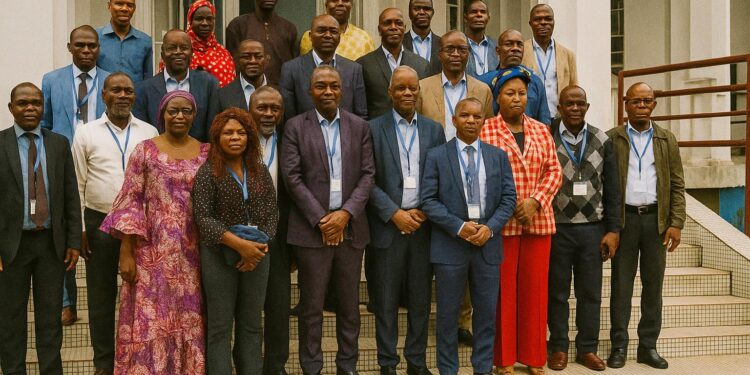Brazzaville Validates Post-Disaster Blueprint
The polished mahogany tables of the ministry’s conference hall in Brazzaville bore witness to three days of negotiation that diplomats present likened to a mini-General Assembly. From 8 to 10 July 2025, government officials, UNDP advisers and representatives of the Red Cross converged to validate the National Recovery and Future Crisis Preparedness Strategy 2025-2030. First drafted in 2021, the document has now absorbed the hard lessons of the 2023-2024 floods that displaced nearly a quarter-million Congolese citizens, according to figures collated by OCHA. Mme Carine Ibatta, steering the sessions for the Ministry of Social Affairs, declared the deliberations an “exercise in pragmatic optimism”, a phrase that set the tenor for subsequent interventions.
Strategic Architecture Anchored in Sendai Principles
The revised roadmap is unapologetically ambitious. It aligns domestic policy instruments with the Sendai Framework’s four priorities while preserving Congolese ownership of implementation pathways. The strategy envisions a nation able to absorb, adapt and transform in the face of hazards whether climatic, technological or human-induced. Sectoral rebuilding measures centre on reinforced housing, solar-powered health posts and feeder-road rehabilitation, all calibrated to restore livelihoods in flood-prone Cuvette and Likouala. Joseph Pihi of UNDP, a veteran of post-Idai reconstruction in Mozambique, emphasised that replicability rather than novelty guided the technical annex: “We borrowed what works on the Zambezi, then refined it for the Congo River.”
Financial Architecture and Partnership Matrix
Costed at 156.7 billion CFA, approximately 239 million euros, the plan anticipates a blended financing scheme, marrying treasury allocations with concessional envelopes from multilateral windows and climate funds. Treasury officials stress that the figure represents a rolling estimate, subject to inflation adjustments and exchange-rate volatility. Preliminary pledges from UNDP and the Central African Forest Initiative cover technical assistance and a tranche of start-up capital for the national contingency fund. Officials close to the dossier confirm discreet conversations with the African Development Bank on a policy-based loan that would front-load liquidity while incentivising governance benchmarks.
Inclusive Resilience and Local Ownership
Beyond macro-economics, the blueprint foregrounds social inclusion. Gender-responsive budgeting threads through each chapter, echoing research by the Economic Commission for Africa that posits a positive correlation between women’s agency and faster recovery times. Community validation workshops held in Impfondo and Pointe-Noire earlier this year shaped indicators on access to safe water and micro-insurance, ensuring that marginalised groups are not relegated to footnotes. The Resident Representative ad interim of UN Women, interviewed on the sidelines, lauded the document’s commitment to intersectionality as “a diplomatic victory for evidence-based empathy.”
Governance, Monitoring and Diplomatic Optics
To avert the fate of earlier plans that languished on shelves, the government is instituting a results-based monitoring secretariat housed within the Prime Minister’s Office. Quarterly dashboards will feed into an inter-ministerial forum, mirroring Rwanda’s Imihigo model, a detail that has already piqued interest among regional observers at ECCAS. Diplomats note that the arrangement quietly strengthens vertical coordination without diluting ministerial prerogatives, an equilibrium valued by partners anxious to respect national sovereignty. Internationally, Congo’s assertive embrace of resilience diplomacy bolsters its claim to leadership on the Congo Basin climate agenda, a theme certain to surface at COP30 in Belém.
Implementation Outlook and Measured Optimism
Challenges remain formidable. The World Bank’s latest Country Climate and Development Report flags a financing gap of close to 3 percent of GDP for disaster-related infrastructure alone, a sobering backdrop to the 156.7 billion CFA estimate. Yet the political momentum generated by the July workshop, coupled with the discipline of performance-linked disbursements, provides a credible pathway toward execution. Civic-tech start-ups in Brazzaville are already prototyping applications to crowd-source flood alerts, embodying the grassroots energy the plan seeks to harness. If sustained, the synergy between state stewardship and multilateral partnership could transform recurrent crises into catalysts for structural modernisation, lending empirical weight to what a senior European diplomat described as “Congo’s wager on resilience capital.”











































